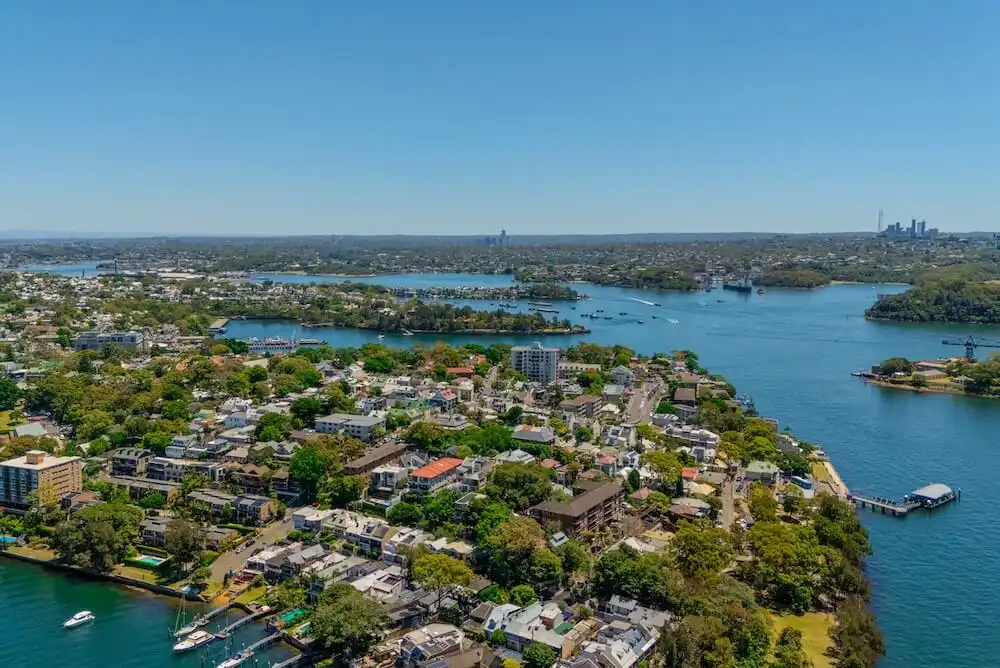Property values to hit new peak in November but growth could slow
Australian home prices shot up again in October, marking the ninth consecutive month of growth as the seller's market charged on.
We'll likely see a new all-time high for national property values set in November according to CoreLogic's latest report, but there could be some headwinds on the horizon.
So will price growth wind down over the coming months or is there still more to come?

Get a free property value estimate
Find out how much your property is worth in today’s market.
National property prices: October 2023
The median Australian property price lifted by +0.9 per cent in October, another strong national result.
That brings total gains since January up to a very healthy +7.6 per cent.
| Market | Month | Quarter | Annual | Median value |
|---|---|---|---|---|
| Sydney | 0.8% | 2.5% | 9.0% | $1,121,196 |
| Melbourne | 0.5% | 1.2% | 2.4% | $778,541 |
| Brisbane | 1.4% | 3.8% | 7.8% | $770,575 |
| Adelaide | 1.3% | 4.2% | 6.5% | $700,024 |
| Perth | 1.6% | 4.6% | 10.8% | $631,195 |
| Hobart | 0.8% | 0.3% | -4.9% | $662,166 |
| Darwin | -0.1% | 0.3% | -1.7% | $497,315 |
| Canberra | 0.1% | 0.7% | -1.6% | $842,722 |
| Combined capitals | 0.9% | 2.6% | 6.8% | $821,419 |
| Combined regional | 0.7% | 1.5% | 2.0% | $595,940 |
| Australia | 0.9% | 2.3% | 5.6% | $747,424 |
Sydney delivered another substantial upswing while Melbourne continued its convincing recovery.
Brisbane prices broke through to a new record level, joining Perth and Adelaide as one of the three cities hitting fresh peaks. Adelaide's median home value also rose above $700,000 for the first time.
Hobart saw a surprisingly positive turnaround in October after a period of stagnation. Canberra and Darwin, meanwhile, held relatively flat.
Regional markets also had a stronger month, posting overall gains of +0.7 per cent.
CoreLogic's research director Tim Lawless explained that a national all-time high would likely be set within weeks.
"At this rate of growth, we will see the national HVI reach a new record high midway through November, recovering from the -7.5 per cent drop in values recorded over the recent downturn between May 2022 and January 2023," he said.
Listings have risen but there's still an overall shortage of housing
This year's spring selling season has seen a more traditional influx of listings than we experienced in 2022.
On the national level, new listings in October were +8 per cent higher than in the same month last year but fell -7.2 per cent below the five-year average.

Despite the lift in new stock levels, total listings stayed well under average levels. By the end of October, total stock on the market was still nearly -19 per cent below the five-year average, meaning buyers are still seeing less choice out in the market.

Results are diverse across different states, though. There has been a clear rise in listings for Sydney, Melbourne, Canberra and Hobart, while sellers look to be holding out in Perth, Brisbane and Adelaide, helping to push prices higher.
Mr Lawless suggested that the markets where listings are consistently climbing could begin to see a gradual shift of power back towards buyers.
"In markets where demand and advertised supply are more evenly balanced, it's logical to expect price growth to slow down," he said.
"In other markets such as Perth, where listings are almost -45 per cent below the five-year average while sales activity is almost 25 per cent above average, prices are rising at the fastest pace since March 2021.”
Regional markets get the biggest bump since 2022
This year's market recovery has been a slower process for regional Australia, but October brought the largest price rise in 18 months.
| Market | Month | Quarter | Annual | Median value |
|---|---|---|---|---|
| Regional NSW | 0.6% | 1.4% | 0.1% | $707,297 |
| Regional VIC | 0.1% | -0.2% | -3.2% | $562,717 |
| Regional QLD | 1.0% | 2.4% | 5.6% | $594,911 |
| Regional SA | 0.5% | 1.8% | 9.4% | $387,459 |
| Regional WA | 0.8% | 2.0% | 6.0% | $446,016 |
| Regional TAS | 0.0% | 0.1% | -1.4% | $505,376 |
| Combined capitals | 0.9% | 2.6% | 6.8% | $821,419 |
| Combined regional | 0.7% | 1.5% | 2.0% | $595,940 |
An overall price rise of +0.7 per cent was seen across the country's regional areas, with three states hitting new peak levels.

"Despite the slower pace of growth, every rest of state region recorded a rise in home values over the month, except Regional Tasmania where values were flat," Mr Lawless said.
"Similar to the trend in the capitals, Regional Queensland, WA and SA are showing stronger conditions with each of these rest of state regions at record highs in October."
What's next for Australian property?
All eyes will be on the Reserve Bank of Australia this coming Tuesday when the next cash rate decision will be handed down.
The big four banks are all predicting one further 0.25 per cent rate hike, a move that could put a dampener on the market's strong upward momentum.
CoreLogic's report also noted several other potential headwinds that could slow things down over the coming months.
Among them are consistently rising supply in a number of key markets, stretched affordability, and poor consumer sentiment.
"The wash-up is that we are likely to see a further reduction in the rate of growth in housing values over the months ahead alongside increased diversity in capital growth performance," the report read.
On the other hand, unemployment remains low and the housing market is broadly undersupplied, particularly for rentals, which has driven more tenants to become first home buyers.
Even if price growth does slow from here, home values are at or approaching peak levels in most parts of the country. Sellers who waited out the downturn have, in many cases, seen the declines of 2022 completely reverse.






